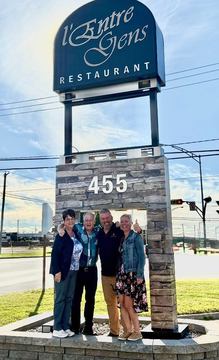
Today we will be discussing two topics that have been popular for a number of years: labor and the environment. These are two sensitive subjects in the general population, but also in the field of catering. Let's see what else we have to teach you...
First, regarding the new law governing the work of young people, the Association restauration Québec (ARQ), which represents approximately 5,000 restaurants in Quebec, maintains that the restaurant sector is not experiencing a significant increase in work accidents. , although it has employed more children in recent years. The ARQ opposes Bill 19, which sets the minimum working age in Quebec at 14 and limits the work of young people aged 14 to 16 to 17 hours a week, with a maximum of 10 hours on Mondays see you on Friday.
Remember that this bill aims to promote school perseverance and protect the health and safety of children.
The ARQ's vice-president of public affairs and government relations says that the figures provided by the restaurant industry prevention group do not show a sharp increase in the number of accidents. He also believes that the industry is making significant prevention efforts and that the frequency and severity of accidents are decreasing. The ARQ opposes a firm minimum age to work and calls for exceptions for certain jobs, such as dish washers and waiters.
The association is in favor of limiting the number of working hours for young people to encourage them to concentrate on their studies. The ARQ's internal survey showed that a third of respondents confirmed employing children under 14 years of age. If the bill passes, they will have 30 days to end these working relationships. For seasonal establishments, recruitment will be difficult and working hours may be reduced to ensure adequate customer service. However, the vice-president of the ARQ does not believe that restaurants will close because of the proposed law.
Second, the St-Hubert Group, in collaboration with the Autistic & Major Foundation and the St-Hubert Foundation, launched a pilot project aimed at improving the experience of people with autism employed in five of its restaurants.
The project includes strategies for hiring, training and raising awareness of personnel and employees of the Boisbriand food manufacturing plant. The Quebec Autism Federation estimates the prevalence rate to be around 1.5%, and the project aims to provide an inclusive environment for people with autism and their families. Adjustments made in restaurants include reducing artificial light, lowering music volume, pre-selection of tables and provision of sensory kits including earplugs, a timer, a communication board and a stress ball. The St-Hubert Group aims to maintain and improve an inclusive culture in the workplace and offers adapted jobs in its Boisbriand plant, where Autisme Laurentides provides the services of a specialized worker to supervise the work of 4 to 6 employees. autistic.
Inclusion is a central theme for the group, which has already initiated other inclusion projects, such as recruitment in different countries and the employment of people with disabilities. A virtual tour is available for those interested, and an online questionnaire allows for feedback.
Finally, in terms of the environment, chef Allan Susser from Miami, in the United States, points out that certain cooking habits are harmful to the environment. He recommends avoiding using water, gas and electricity unnecessarily and buying food packaged in plastic. He suggests using your own bags for groceries and buying seasonal foods to avoid the carbon footprint. Buying excessive amounts of food and over-consuming oil also contribute to waste. Finally, he recommends using foods in a "crossover fashion," buying whole foods and using each part for different cooking, rather than buying pre-cut foods.







